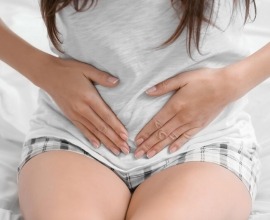Can supplements help increase fertility?
- WHAT ARE SUPPLEMENTS?
- MICRONUTRIENTS AND FERTILITY
- WHAT SUPPLEMENTS SHOULD I BE TAKING?
- DO SUPPLEMENTS HELP WITH FERTILITY?
When trying to conceive, we all know how important a healthy and nutritious diet can be. But what about supplementation? Do we need supplements, and do they help improve fertility?
WHAT ARE SUPPLEMENTS?
Simply put, dietary supplements are substances intended to supplement one’s diet by taking specific nutrients in the form of a pill, capsule, tablet, powder, or liquid. While you can (and should) be aiming to get all of the nutrients that your body needs from food alone, supplements can ensure that you’re taking in certain micro and macronutrients that your body might be missing.
MICRONUTRIENTS AND FERTILITY
There’s a lot of talk about whether supplements are necessary or not for people who want to increase their fertility. Unfortunately, fertility is a complex matter as each person’s body is different and will therefore react slightly differently to one another. Some people swear by them, whereas others don’t see much, if any benefit from them.
That being said, there’s some pretty strong evidence coming from studies that have begun to shed some light on the role of consuming vitamins and staying pregnant.
Vitamins play an essential role in all of our bodily functions, including the reproductive system. They’re used in:
-
Menstruation and ovulation in women
-
Thyroid function
-
Energy production
-
Immune function
-
Egg quality and maturing [1]
WHAT SUPPLEMENTS SHOULD I BE TAKING?
If your diet is in check and you’re hitting all of your micro and macronutrient requirements throughout the day with food alone, you may not need to take supplements at all, but they are a convenient way to get in certain vitamins and minerals for those of us that don’t have the time or luxury to prepare and consume large amounts of fruits and vegetables, as life sometimes gets in the way.
It's important to remember, although there’s a convenience factor with taking supplements, they’re called supplements for a reason – they supplement your diet. So, you should never rely on consuming supplements alone. They should always be taken in conjunction with a well-balanced and nutritious diet.

With that being said, here’s a list of some supplements that may boost fertility in both men and women:
Acetyl L-carnitine
This supplement has been said to help with sperm mobility. It also contains antioxidants that promote a healthy reproductive system in women.
B vitamins (other than folic acid)
It’s claimed that this vitamin can help promote egg health in women and prevent ovulatory infertility. It may also improve sperm quality in men.
Vitamin D
Even though we can form vitamin D by receiving sunlight on our skin, most of us don’t get the amount that we need. Vitamin D is important for both men and women as it plays a role in the reproductive system.
Vitamin E
This vitamin contains antioxidant properties that can increase sperm mobility, as well as boost general reproductive health in women.
Omega-3s
These essential fatty acids have been linked to improved embryo implantation, decreased premature labour, and improved sperm mobility.
Zinc
A 2019 study showed that lower levels of zinc in the blood were correlated with a longer time trying to conceive. This mineral is also essential for the formation of sperm.
Calcium
Although it isn’t definitive that extra calcium helps with fertility, it is known that it’s involved in the production of sperm. Studies have shown that calcium deficiency in men could be the cause of infertility.
Coenzyme Q10
Your body naturally produces coenzyme Q10 but increasing the amount of it in your bloodstream through supplementation may be beneficial for conceiving, particularly if you’re trying IVF.
Selenium
Research in 2015 concluded that a selenium deficiency can be a contributing factor in miscarriage, low sperm quality, and poor sperm mobility.
DO SUPPLEMENTS HELP WITH FERTILITY?
Yes – as we can see, consuming the correct nutrients are clearly important as they play a direct role in bodily functions that are related to fertility. Although you can get all the nutrients you need from food, it’s sometimes hard to get everything your body needs from diet alone.
Even though most vitamins are sold over the counter, they don’t come without their risks. Many supplements can negatively interfere with certain medications you may already be taking, which can result in unpleasant and potentially dangerous side effects. [2]
It’s also important to note that it is possible to consume too many vitamins. How can that be? Well, large amounts of vitamins can damage organs and other areas of the body if you consume too many of them. So, it’s important that you always follow the recommended dosage, and consult a health specialist if needed. [3]
With a nutritious diet, exercise, and supplementation with some of these vitamins and minerals that we’ve mentioned, you’ll be on your way to improved fertility and a healthier body.
SOURCES:
[1] Supplements to Take to Increase Fertility | The Evewell
[2] Fertility Vitamins to Take When Trying to Conceive (healthline.com)
[3] Is It Possible to Take Too Many Vitamins? | Health.com














